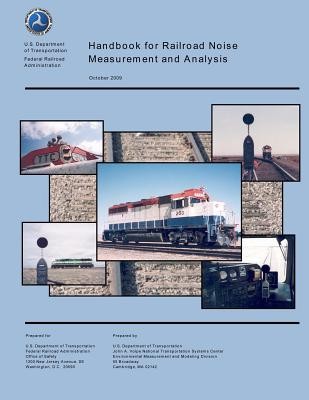
- We will send in 10–14 business days.
- Author: U S Department of Transportation
- Publisher: CreateSpace Independent Publishing Platform
- Year: 2013
- Pages: 278
- ISBN-10: 1494708329
- ISBN-13: 9781494708320
- Format: 21.6 x 28 x 1.5 cm, softcover
- Language: English
- SAVE -10% with code: EXTRA
Handbook for Railroad Noise Measurement and Analysis (e-book) (used book) | bookbook.eu
Reviews
Description
The handbookis intended as guidance for those conducting sound level measurements for railroad regulatory compliance under 40CFR Part 201 and 49CFR Parts 210, 222, 227, 228, and 229. Specifically, it addresses 1) noise generated by locomotives and rail-cars during line haul operations, 2) noise generated by yard operations from stationary locomotives, locomotive switching, car-coupling impacts, retarders, and load cell test stands, 3) locomotive horn sound levels, 4) noise levels inside locomotive cabs, 5) noise levels inside employee sleeping quarters, and 6) train employee occupational noise exposure.It contains a historyof these regulations, ageneral procedure for conducting a noise measurement or noise exposure monitoring program and regulation-specific measurement and data analysis procedures and guidance for each type of compliance, including planning recommendations and measurement equipment. It also contains example forms and log sheets to help facilitate the documentation of each measurement. These general procedures can be easily adapted to effectively measure most types of railroad-generated noise
EXTRA 10 % discount with code: EXTRA
The promotion ends in 19d.06:14:10
The discount code is valid when purchasing from 10 €. Discounts do not stack.
- Author: U S Department of Transportation
- Publisher: CreateSpace Independent Publishing Platform
- Year: 2013
- Pages: 278
- ISBN-10: 1494708329
- ISBN-13: 9781494708320
- Format: 21.6 x 28 x 1.5 cm, softcover
- Language: English English
The handbookis intended as guidance for those conducting sound level measurements for railroad regulatory compliance under 40CFR Part 201 and 49CFR Parts 210, 222, 227, 228, and 229. Specifically, it addresses 1) noise generated by locomotives and rail-cars during line haul operations, 2) noise generated by yard operations from stationary locomotives, locomotive switching, car-coupling impacts, retarders, and load cell test stands, 3) locomotive horn sound levels, 4) noise levels inside locomotive cabs, 5) noise levels inside employee sleeping quarters, and 6) train employee occupational noise exposure.It contains a historyof these regulations, ageneral procedure for conducting a noise measurement or noise exposure monitoring program and regulation-specific measurement and data analysis procedures and guidance for each type of compliance, including planning recommendations and measurement equipment. It also contains example forms and log sheets to help facilitate the documentation of each measurement. These general procedures can be easily adapted to effectively measure most types of railroad-generated noise


Reviews